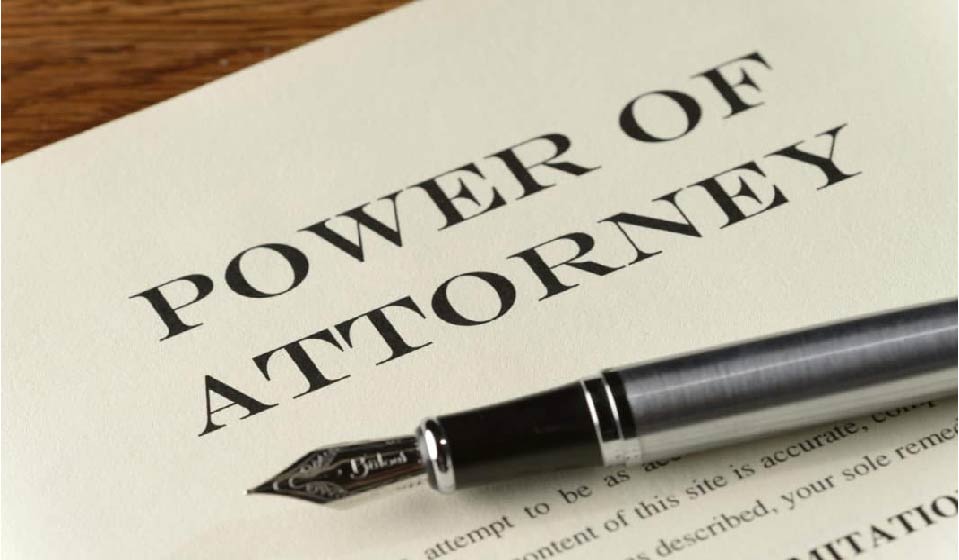When a loved one passes away, it sparks difficult questions about handling their affairs. You may wonder, what happens to the power of attorney when they die? Does it end immediately or carry on?
Power of attorney is a useful estate planning tool. But it is not designed to outlive the one who grants it – the principal. So, when death occurs, the authority granted to the agent typically ends.
However, there are exceptions under certain state laws and for durable financial powers. The situation becomes complex quickly. If you find yourself facing this, it helps to understand precisely how death impacts powers of attorney.
What is Power of Attorney?
Power of attorney is a document where the principal appoints an agent to handle affairs on their behalf. The agent takes actions related to finances, healthcare decisions, real estate matters, business interests, or other personal matters.
The most common scenarios involve:
- Financial Power of Attorney – Allows the agent to manage money matters if illness or injury leaves the principal unable to do so. This avoids an expensive court process to assign guardianship.
- Health Care Power of Attorney – Grants authority to the agent to make healthcare choices if the principal can’t communicate decisions. This is also called a healthcare proxy or medical power of attorney.
- Real Estate Power of Attorney – Provides limited authority to sign, sell, or undertake real estate transactions for the principal.
- Durable vs Non-Durable – A standard power of attorney ends if the principal becomes mentally incapacitated. But a durable power remains effective even if this happens.
Does Power of Attorney Remain Valid After Death?
In most cases, death immediately revokes an agent’s authority to act under power of attorney. The agency relationship depends wholly on the principal being alive. So when they pass, that authority expires automatically under standard laws.
For instance, in North Carolina and 47 other states, power of attorney ends at the time of death unless specifically stated otherwise. Certain exceptions exist, like for settling the estate or under special durable provisions. But the default is for an agent’s powers to lapse upon demise based on common law agency principles.
However, North Carolina does permit springing power of attorney terms that outline survival requirements. So, the authority can continue for a set time period after death.
While death typically terminates power of attorney instantly, an exception applies for those made “durable” – as we will see next.
What Happens to A Durable Power of Attorney After Death?
A durable financial power of attorney follows different rules. Durable provisions aim to ensure authority continues if the principal loses the capacity to handle affairs – whether from illness or another cause. This avoids an expensive legal process imposing guardianship.
Because of durable provisions, financial power can remain intact at death but only temporarily. The reason relates to winding up the principal’s affairs smoothly to limit complications for the family. Our state laws allow a grace period to transition finances, sell property, and redirect mail or payments during estate settlement.
Authority Limited to Estate Settlement
After the death of the principal, the durable authority itself does not expire automatically because it persists through incapacity. Instead, the scope narrows significantly to acts reasonably related to wrapping up matters.
So, the agent or executor can rely on the durable power to close accounts, access safe deposit boxes, sell property in the estate, wrap up tax filings, redirect pensions or disability payments, and similar end-of-life financial activities involved in probate.
States Define Duration Limit
While durable financial authority lingers temporarily, state laws impose time restrictions – often between 6 to 12 months. In North Carolina, an executor can utilize a durable power for 90 days after death for estate settlement purposes.
So, durable authority lasts only briefly, not indefinitely. The agent cannot continue using it as though the principal were still living and managing their own affairs.
Can Access to Accounts Continue After Death?
Another common question is about access to the principal’s accounts after they pass away. Does the power of attorney still provide access?
The answer closely relates to the “durable” provision and time limits we discussed.
Most states do allow a remaining durable power to offer account access for a brief transitional period following death. This grace period helps the executor carry out essential transfers, payments, and account closures needed to settle estate matters.
However, financial institutions place restrictions once they receive a death certificate or obtain other confirmation of the principal’s passing. The bank will freeze funds for estate processing and require court documents appointing an executor. So, account access remains quite limited compared to when the principal was living.
Beyond the short grace period as defined by state law, the durable authority expires completely. Accounts then move fully into probate processes. So, the window for the agent or executor to access accounts using power of attorney is narrow, temporary, and conditional.
Acting as Agent After Death: Best Practices
If you serve as someone’s power of attorney agent, their passing brings profound changes. Your legal authority shifts into limited territory focused only on estate settlement.
During this transitionary period, the following best practices help ensure smooth processes for inheritors:
- Notify Relevant Institutions – Alert banks, financial companies, government agencies, and others promptly regarding the death. This curtails fraud and ensures the principal’s wishes are followed.
- Limit Actions – Only utilize the durable power still intact for essential estate settlement activities involving finances, property, and final business.
- Maintain Detailed Records – All actions under enduring power during estate administration need clear documentation. Keep meticulous notes as required for fiduciary agents.
- Work closely with Estate Attorney – With various state limits and use qualifications, rely on expert counsel to proceed properly and limit liability risks.
- Wrap-Up When Complete – After helping facilitate accounts transfers, property sales, tax filings, and other specific settlement items, retire the power of attorney. Move into probate processes fully.
The weeks following a principal’s death often feel dizzying for family and agents alike when so much financial activity collides with grief. So, leaning on this temporary durable authority can assist significantly with administrating affairs. Still, specialized legal direction helps ensure you avoid missteps.
Consult an Attorney for Estate Planning
Powers of attorney are useful estate planning documents while you are alive. But upon your death, your will and named executor take precedence over any appointed agents.
To ensure your wishes are properly carried out, consult an experienced estate planning attorney when creating or updating any legal documents.
The team at Donaldson Law Firm in Wilmington, NC, guides clients through all aspects of estate planning to prepare for the future. They can help you understand powers of attorney and how they fit into your overall estate plan. Get in touch to schedule a consultation.




